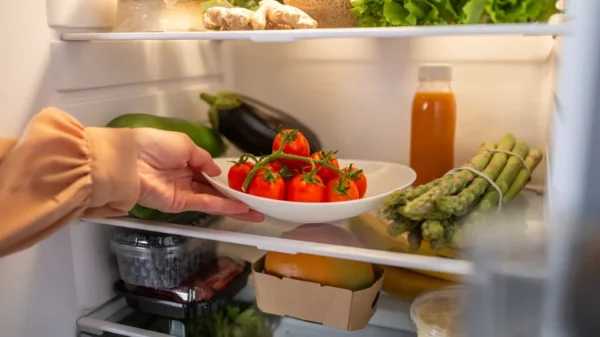Understanding Tomato Storage
Tomatoes are a beloved staple in kitchens across the world, celebrated for their vibrant flavor and juicy texture. However, they have a notoriously short shelf life, quickly transitioning from perfectly ripe to mushy. To extend the window of ideal ripeness, experts recommend an unconventional method: storing tomatoes upside down.

The Science Behind Upside Down Storage
The top of a tomato, where it was attached to the vine, is a delicate area where moisture escapes as the fruit continues to ripen. By storing tomatoes upside down, this opening is sealed off, significantly reducing moisture loss and minimizing the risk of bacterial contamination. While some may opt for tape over the vine scar, this can damage the tomato’s skin upon removal, making upside down storage the safer choice.
Additional Tips for Tomato Longevity
Storing tomatoes correctly involves more than just inverting them. First, store unripe tomatoes on the counter at a temperature of 60 to 65 degrees Fahrenheit, away from direct sunlight. Once they have ripened, they can be transferred to the refrigerator, effectively prolonging their fresh quality. However, it is crucial to allow your tomatoes to return to room temperature before cooking or serving them; cold tomatoes can lose flavor and negatively affect the dishes they accompany.
In summary, the benefits of storing tomatoes upside down cannot be overstated. This method preserves their quality much longer, ensuring that you can enjoy their exquisite flavor at its best.
